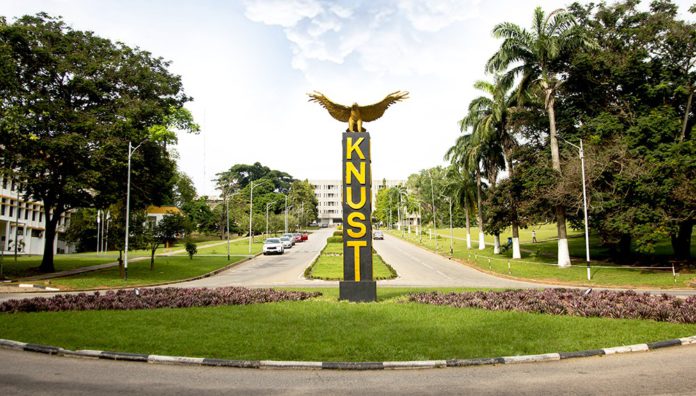In Ghana’s current political climate, the role of public institutions must be scrutinized for transparency, fairness, and neutrality. One institution now drawing public attention for all the wrong reasons is the Kwame Nkrumah University of Science and Technology (KNUST) and at the heart of it is the university’s own Public Relations Officer, Dr. Norris Bekoe.
As the official voice of one of Ghana’s most respected universities, Dr. Bekoe’s words: both online and offline carry significant institutional weight. Which is why his recent activity on social media has raised eyebrows and triggered a larger question: Is KNUST aligning itself with the New Patriotic Party (NPP)?
When personal opinions sound like official stance
Over the past few months, Dr. Bekoe has made multiple social media posts that many see as unambiguously partisan. One notable instance occurred in March 2024, when he retweeted a post praising Vice President Dr. Mahamudu Bawumia’s digitalisation agenda, accompanied by his own comment:
“This is the kind of leadership Ghana needs to keep moving forward. #ItIsPossible.”
In another Facebook post shared in February, Dr. Bekoe described Bawumia as “the most visionary leader of our time,” shortly after the NPP flagbearer visited KNUST. The language was not only celebratory, it was promotional. And coming from the university’s chief communicator, the public perception quickly shifted from personal admiration to institutional endorsement.
On X (formerly Twitter), Dr. Bekoe also responded to a critical thread about the NDC’s stance on education reforms by stating:
“When you don’t understand innovation, everything looks like noise. KNUST stands with progress.” Many interpreted the comment as subtly linking “progress” to the NPP’s agenda.
While it is not unusual for individuals to express their political leanings on personal platforms, Dr. Bekoe is not just any individual, he is the mouthpiece of a major national university. The problem isn’t that he holds an opinion. The problem is that his position makes it difficult to distinguish between personal views and official communication. For students, staff, and the public, the lines are increasingly blurred.
Why these matter
KNUST is a publicly funded university with students, lecturers, and alumni from all political, religious, and ethnic backgrounds. The expectation is that such a university remains politically neutral in its communications and administrative operations. When its leading spokesperson uses his platform to push what appears to be pro-NPP rhetoric, it undermines public trust and creates a dangerous precedent.
Even within the university community, some students have begun to question whether dissenting political opinions would be fairly represented—or quietly stifled. That sense of institutional bias, even if not deliberate, is corrosive to academic freedom.
Time for a communication policy review?
This situation also raises a deeper question: Should public relations officers at state institutions be held to a higher standard of neutrality online? Just as civil servants are expected to maintain professional impartiality in public, so too should the communicators of our public universities. After all, they don’t just represent themselves, they represent the identity, values, and voice of the institution.
KNUST’s reputation as a leading centre of academic excellence depends not only on infrastructure and research output but also on how it navigates the ethics of public engagement. The university must now consider developing or revisiting a clear code of conduct for its officials’ use of personal social media especially when those platforms are used in ways that blur the line between the individual and the institution.
In Conclusion
Ghanaians deserve universities that are not seen to be leaning towards any political party: NPP, NDC, or otherwise. KNUST must be a university for all, not one perceived to be wearing political colours, even subtly. If public trust is to be restored, and institutional credibility preserved, the university must act quickly and communicate clearly.
The voice of KNUST should reflect its diverse community, not echo a party’s sloga

